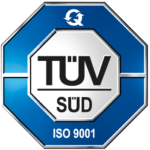Industrial wastewater, agricultural runoff, household waste, uncollected garbage, and chemical contaminants contribute to the worldwide deterioration of water quality, endangering the health of humans, animals, and plants. These diverse threats require specialized and effective solutions.
SFC Umwelttechnik is a leader in developing advanced technologies for drinking water treatment and wastewater treatment. We offer customized solutions tailored to the specific needs of our clients, helping to significantly improve water quality. Our mission is clear: We aim to ensure that clean water is accessible to everyone, regardless of the challenges.
Our innovative systems are compact and efficient, requiring less space, less energy, and fewer chemicals than conventional methods. This leads not only to better results but also to lower operating costs. Our technologies are designed to be environmentally friendly while meeting the highest performance standards.
At SFC Umwelttechnik, we understand the vital importance of clean water. It is the foundation for health, prosperity, and sustainable development. Therefore, we are continually working to develop new and improved technologies that minimize the impact of water pollution and ensure a sustainable water supply.
Our solutions for water recycling and wastewater treatment are not only technologically advanced but also environmentally responsible. We focus on sustainable innovations to protect and regenerate the world’s water resources. Our dedicated experts develop and implement solutions that meet the highest standards while helping to preserve the environment.
Discover the diverse challenges of water pollution and how SFC Umwelttechnik, with its advanced technologies, contributes to ensuring a clean and safe water supply for future generations. Be inspired by our vision and commitment to a better future.
